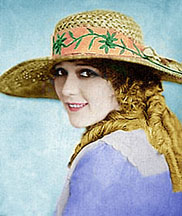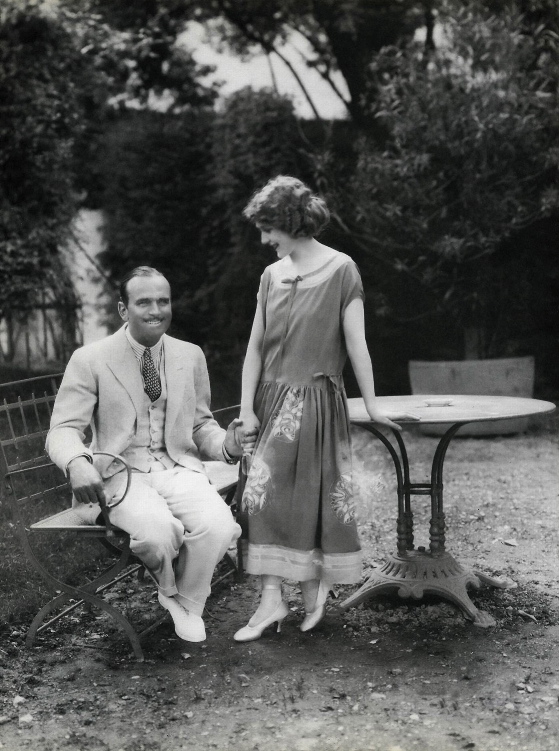
I fell in love with Mary Pickford when I watched this film a few years ago. I know you’re
probably thinking, “What took you so long?”, but I really hadn’t seen
much of her work before — some of the Biograph shorts she made for D.
W. Griffith and Sparrows, one of her later silents. I liked Sparrows a lot, thought it was a very well-made film, and admired Pickford’s craft extravagantly . . . but there was something self-conscious about it, something built into the idea of a masterful
artist playing a child, which had the flavor of a brilliant (a really brilliant) stunt.
But when I watched Amarilly Of Clothesline Alley all my resistance
melted. First of all, Pickford plays a sexually mature female, innocent
by choice but well aware of her options — and she’s very sexy, very
self-possessed and powerful, which makes her goodness all the more
vexing. The whole film is permeated with a strong aura of female power,
expressed most poignantly and convincingly in the easy camaraderie
between Amarilly and her mother — you get a sense that there’s no
problem on earth these two can’t solve . . . and haven’t solved, in a
sense, keeping a fatherless family together in crushing poverty. (You
also get a clear echo of Pickford’s actual early life, growing up too
fast, more of a peer than a daughter to her own mother.)
The wry eye they throw on the rest of the world, especially the world of
men, delightfully underlined in the snappy intertitles by Frances
Marion, their exuberant enjoyment of each other’s company, and of life
itself, exactly as it is, suggest a whole universe of female
self-sufficiency and dominion which our culture has managed to
eradicate almost entirely from the mainstream of popular art. (I begin
to think that the national euphoria over Pickford’s marriage to Douglas
Fairbanks may have reflected America’s pride, and perhaps relief, that
the country managed to produce a man worthy of her.)

The style of the film as a whole, and Pickford’s performance in particular,
is shockingly casual, fast-paced, breezy and naturalistic — Amarilly
seems to have a whole and real and complicated inner self which she
chooses to share with others, and with us, out of sheer generosity and
goodwill. Virtue has never seemed so alive, so glamorous.
Well, I’m not the first person this has happened to, and thanks to the miracle of DVDs, I won’t be the last.
